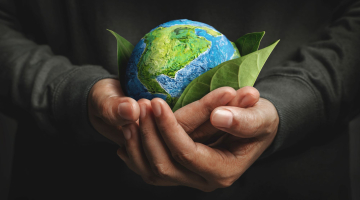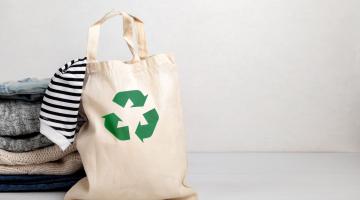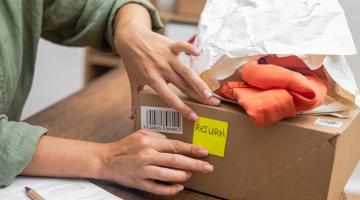
An NRF and IBM survey from last year found that nearly 80 percent of consumers report that sustainability is important for them. Nearly 60 percent are willing to change their shopping habits to be more sustainable. More than 70 percent of consumers who report that sustainability is very or extremely important are willing to pay a 35 percent premium for more sustainable and environmentally responsible products.
Consumers are demanding that retailers embrace sustainability — and retailers are responding. Among other sustainability efforts, retailers are placing signs and symbols throughout their stores and online to make it easier for consumers to find more sustainable products.
The challenge for both retailers and consumers is that it can be difficult to know when a product is more sustainable than alternatives. Some definitions of sustainability focus on the materials used to make or package the product. Do they contain recycled-content or renewable materials? Are they compostable, recyclable or biodegradable?
Some sustainability definitions focus on the impacts of using the product: Is it more energy- or water-efficient, healthier or safer than alternative products? Other definitions focus on who makes the products and how those workers are treated: Are they treated fairly and working under safe labor conditions?
With so many different and overlapping ways to identify more sustainable products, sustainability-minded consumers have a lot of questions. As a result, retailers are demanding a lot of additional sustainability information from their suppliers. Retailers then use that information to select appropriate products and to identify those products on store shelves or online.
Some of the many retailers highlighting their more sustainable product offerings include:
Amazon’s “Compact by Design” and “Climate Pledge Friendly” designations identify products that meet the criteria of 30 independent certification programs.
Best Buy identifies energy-efficient products meeting the U.S. government’s Energy Star program. It also highlights available government and utility company rebates for buying energy-efficient products.
Rite-Aid identifies “eco-friendly” products online and places shelf tags throughout its stores identifying products with “Proud Planet,” “Free From,” “Smart Choice” and “Well Being” labels that provide additional information.
Sephora’s “Clean Beauty” program places visible badges throughout stores and online. They highlight products that exclude specific chemicals of concern along with products with more sustainable packaging or other environmental or social benefits, including identifying Black-owned brands.
Staples and Office Depot both promote more sustainable products in-store and make them easy to find online. More sustainable products are particularly important for business and government customers with public sustainability goals: Buying more sustainable office supplies, furniture and equipment helps those customers meet their goals.
The “Target Clean” symbol is used throughout its stores to identify products free from specific ingredients. It places products meeting its sustainable products criteria prominently throughout its stores with prominent messaging explaining the benefits and has a designation for Black-owned brands.
Walmart’s “Built for Better” program uses icons to identify products that are built better “for you” and “for the planet.” Products are recognized with icons when they demonstrate compliance with a variety of respected certification programs.
Ultimately, retailers exist to meet the demands of consumers. When consumers want more sustainable products, retailers will find a way to provide them and make them easy to find. Consumers will drive what happens next.



